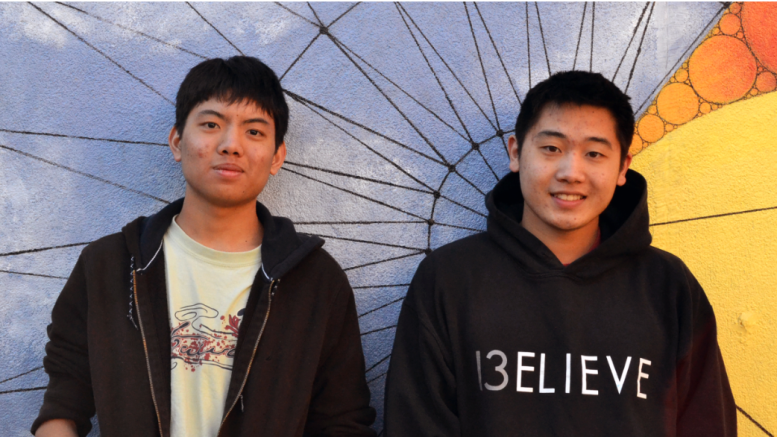On January 9, the Society for Science and the Public and Intel announced Seniors Charley Zhang and Kevin Chen as 2013 Intel Science Talent Search (STS) semifinalists. The Intel STS is a national science research competition for high school seniors. According to the Intel STS website, “Participants are judged on their original scientific research and their achievement and leadership, inside and outside the classroom.” Chen built a less expensive version of lab equipment used to study ferroelectrics, a group of materials that respond to changes in the environment, while Zhang developed a simpler method of producing a potential cancer-fighting drug.
As semifinalists, both Chen and Zhang are each receiving a $1,000 award and bringing home an additional $1,000 for MSJ for their achievement. Chen, who has moved on to become one of 40 finalists selected from the pool of 300 semifinalists, will go to Washington, D.C. in from March 7-13 to compete for $630,000 in awards. The top prize is $100,000 from the Intel Foundation.
Chen’s work resulted in a much less expensive version of a power meter, signal generator, and oscilloscope. “Since the lab equipment used to perform electrical measurements on [ferroelectrics] usually costs upwards of $50,000 or so, I tried making a low-cost version of it (that only ended up costing around $50), which made measurements on-par with those commercial machines,” said Chen. He did his research at the Stony Brook University Simons Summer Research Program under the guidance of two mentors: Assistant Professor Matthew Dawber and postdoctoral student Dr. John Sinsheimer.
Zhang researched the synthesis of indazoles, which are a group of drugs with potent medical applications. He specifically worked with YD-3, a drug that has potential for the treatment of cancer. “I shortened the synthesis method from an expensive five-step procedure to a simple two-step procedure. That way, the making of this drug can be more economical,” said Zhang, who did his project at a 10-week internship at The Scripps Research Institute, close to UCSD. He was mentored by Dr. Mengchun Ye and Professor Jin-Quan Yu.
Chen became interested in materials science after he spent the summer of 2011 at the UCSB Research Mentorship Program studying LEDs to improve their efficiency. Regarding why he decided to go for the internship he attended, Zhang said, “I liked science my whole life so when I saw this opportunity I thought it would be cool to experience it first hand in a lab, and it was.”In the future, both semifinalists plan on continuing to pursue research. Chen hopes to do more with his project in the future, and is currently working with his mentors trying to publish an article about his work in a few scientific journals. Zhang also plans to continue studying chemistry and the natural sciences and doing research projects. He said, “They provide great opportunities to learn more about the field and the industry, meet talented people, and experience new places.”
For information on how to apply to the 2014 Intel STS, visit http://www.societyforscience.org/STS.



Be the first to comment on "Two Intel Science Talent Search Semifinalists From MSJ"